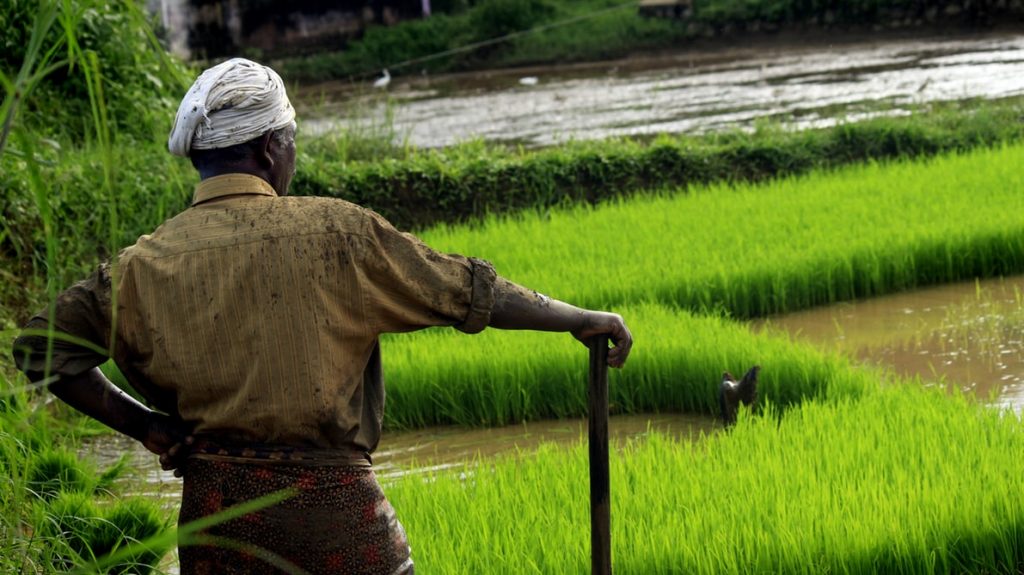Being one of the oldest sectors and the backbone of the country, developing the Agriculture industry has been a huge concern for the Indian government. A lot of factors such as climate change, population growth, and food security concerns, have driven the sector to seek more innovative approaches to improve crop yielding and get better farming results. Artificial intelligence (AI) being a game-changer in other industries, the Indian government has realised the importance and started to leverage this technology in developing the sector.
NITI Aayog came up with a National Strategy for Artificial Intelligence in India, which is aimed at focusing on economic growth and social inclusion. According to Agriculture Secretary Sanjay Aggarwal, “AI and big data are going to be a game-changer in the agriculture sector and the government is aiming to collate about 80% of such data by 2020.”
AI can help achieve this vision by contributing to critical areas like:
- Crop Selection, where AI-based solutions are ideal for selecting crops based on parameters like soil type, monsoon dates, availability and affordability.
- Crop Monitoring, where data can be collected using technologies like IoT, drones, and satellite imaging, from the fields, and then monitored and analysed by AI-based applications to identify the right solutions.
Also Read: How AI-Empowered Smart Farmers Can Help India
In this article, we will explore the AI-powered projects in the Indian agriculture sector.
Government of India with IBM
Under the pact, the government of India has signed an MOU with IBM to use artificial intelligence (AI) to secure the farming capabilities of Indian farmers. IBM has started a pilot study to use AI-based technology and satellite technology to monitor the agriculture sector of the country. The pilot study will be conducted in states like Madhya Pradesh, Gujarat and Maharashtra. Post the pilot study, IBM’s Watson decision platform will provide a farm-level solution for improving the agriculture sector. It will provide weather forecast and soil moisture information to farmers to take pre-informed decisions regarding better management of water, soil and crop.
This initiative was aimed at improving the future of farming by harnessing multiple data points and combine predictive analytics, AI, satellite data, and IoT sensors to give farmers insights on ploughing, choosing crops, spraying pesticides, and harvesting.
Pradhan Mantri Fasal Bima Yojana (PMFBY)
This is a government-sponsored crop insurance scheme that integrates multiple stakeholders on a single platform. To improve the crop sector, the government will now envisage the use of innovative technologies like AI, remote sensing imageries, and modelling tools to reduce the time lag for settling of claims of the farmers. By analysing the data collected, the scheme aims at increasing the crop insurance penetration in India by increasing farmer awareness and reducing farmer premium rates.
PMFBY will be providing financial support to farmers who are suffering from crop loss or damage arising out of unforeseen events, along with stabilizing the income of farmers to ensure their continuance in farming. The scheme will also encourage farmers to adopt innovative technologies and modern agricultural practices. It also ensures the flow of credit to the agriculture sector, which will contribute to food security, crop diversification and enhancing growth and competitiveness of the agriculture sector besides protecting farmers from production risks.
PM-KISAN
By leveraging the benefits of AI, the government of India has rolled out a scheme — PM-KISAN, where every farmer is going to receive Rs. 6000 annually to support their farming abilities. The government is aimed to leverage the huge amount of collected data by several agri-schemes and use the same to better target the farmer who requires the benefit of PM-KISAN.
The data will be used in creating a proper framework for farmers, along with the right policy. It will also help in converging some government projects to achieve the targeted development of farmers and the overall sector.
Government of Karnataka with Microsoft
The government of Karnataka has also recently signed an MOU with a tech giant — Microsoft to empower smallholder farmers with AI-based solutions to help them increase income and price forecasting practices. Microsoft with guidance from Karnataka Agricultural Price Commission (KAPC) is aiming to use digital tools to develop a multivariate agricultural commodity price forecasting model considering the following parameters — sowing area, production time, yielding time, weather datasets, and other relevant datasets.
AGRI-UDAAN
In a bid to push innovative technologies in agriculture secure, the government of India has also launched another initiative — AGRI-UDAAN – Food & Agribusiness accelerator 2.0 to mentor 40 agricultural startups from cities like Chandigarh, Ahmedabad, Pune, Bengaluru, Kolkata and Hyderabad, and enable them to connect with potential investors. This initiative is a six-month-programme in which shortlisted Agri startups with innovative business models will be mentored and guided to improve their operations, enhance commercialisation, improve product validation and business plan preparation, risk analysis, customer engagement, finance management, and fundraising. These shortlisted startups will also stand a chance of receiving $40,000 as funding assistance.
Maha Agri Tech Project
Launched earlier this year, the project is based out of Maharashtra — seeks to use innovative technologies to address various risks related to cultivation such as poor rains, pest attacks, etc. and to accurately predict crop yielding. The project will also use this data to inform farmers about several policy requirements including pricing, warehousing and crop insurance.
The first phase of the project uses satellite images and the data analysis done by Maharashtra Remote Sensing Application Centre (MRSAC) and the National Remote Sensing Centre (NRSC) to assess the area of land, and the conditions of select crops in select talukas. However, the second phase includes an analysis of the data collected to build a seamless framework for agriculture modelling and a geospatial database of soil nutrients, rainfall, and moisture stress to facilitate location-specific advisories to farmers.





















